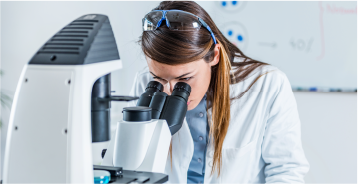Epigenetics and addiction – why quitting is more than just sheer willpower
 Health and Wellness
Health and Wellness
We need to process your personal information for you to interact with this website. We also use Cookies to enhance your experience. Please accept the Website Ts and Cs and Data Protection and Privacy Policy to fully access the website.
One of the biggest concerns people have when switching to a plant-based diet is: “Will I get enough protein?” The good news is that a well-planned plant-based diet can provide all the protein your body needs, without relying on meat. As a dietitian, I’m here to show you how to meet your protein needs while enjoying a variety of delicious, plant-based foods.
How much protein do you need?
The recommended dietary allowance (RDA) for protein is 0.8 grams per kilogram of body weight. However, if you're physically active, an athlete, or trying to build muscle, you may need anywhere from 1.2 to 2.0 grams per kilogram. Now, let’s dive into the best plant-based protein sources!
Top plant-based protein sources
Key takeaways
Getting enough protein on a plant-based diet is easier than you think! By incorporating a variety of legumes, soy products, whole grains, nuts, and seeds, you can meet your protein needs while enjoying a nutrient-rich, sustainable diet.
Thinking about going plant-based? Start by adding more of these protein-packed foods to your meals, and you’ll be well on your way to a healthy, balanced diet!